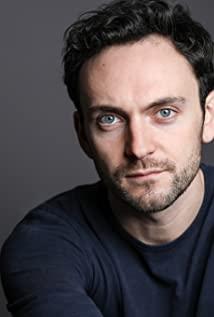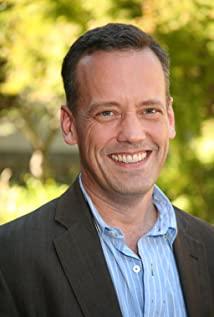After Javert on the Endless Road to Calvary , talk about Jean Valjean. Let's talk about the Gospel without talking about anything else.
advance statement. I haven't read the original. The understanding of the characters is all from the adapted musical/movie story. If you misunderstand Mr. Hugo's meaning, I hope the original party will show mercy. Also, "Les Miserables" is not a gospel novel/musical/movie, it's just a literary work with gospel elements (which is commonplace in Western literature). I never said watching "Les Miserables" to live forever.
As mentioned earlier, Javert's role is very clear, and he is keen to enforce the law to the point of "I am the law". He regards Valjean's forgiveness of his life as a great shame,
Compared with Javert, the role of Valjean is not so simple to understand. The question I ask here is, is he sure he is saved?
The Wikipedia introduction to the original novel of Les Misérables is as follows:
"Beginning in 1815 and culminating in the 1832 June Rebellion in Paris, the novel follows the lives and interactions of several characters, focusing on the struggles of ex-convict Jean Valjean and his experience of redemption." The
story is about Jean Valjean's struggle and redemption experience. So, let's briefly review the life of Jean Valjean.
Sentenced to five years in jail for stealing a piece of bread for his sister's children, then extended to 19 years for several attempted escapes. On the day of his parole, Javert said to him, "You are a dangerous person, and your parole bond will be a mark of shame that will follow you for the rest of your life." Back in the world outside the walls, Valjean was labeled as a "dangerous person" because of the , no one wants to accept him. Cynical, he can only "return to the old business". On the freezing night, Bishop Myriel took pity and accepted him, giving him food and shelter, but he ransacked the monastery's silverware and fled. When the police took the stolen goods back to the monastery, Bishop Myriel said, "Oh, I gave him these. He walked so fast that he forgot to take the best silver candlesticks." So it became A turning point in Valjean's life. He came to the Crucifixion and wept bitterly, accepted forgiveness, repented of himself, tore up his parole bond, and started another life. Since then, he has changed his mind and changed his mind under the pseudonym Monsieur Madeleine. With the help of the silverware gifted by Bishop Myriel as capital, he has become a successful small factory owner. After being reborn, he was enthusiastic about charity and cared about the suffering of the people, and was later elected as the mayor of the town.
It can be seen that Bishop Myriel's forgiveness is the trigger for the story of Valjean's "rebirth". For the time being, I won’t test whether Bishop Myriel’s message to Valjean is complete.
Returning to the crucial question posed earlier, is Valjean sure he is saved? Judging by the storyline and character lines, I tend to think, he's not sure.
I mean, Valjean has done countless good deeds in his life, but on his deathbed he still doesn't know if the land that awaits him after he is gone. He rescued Mr. Fauchelevent, who was crushed by a heavy object, from a critical situation, rescued Fantine who was wounded in self-defense from the unscrupulous policeman Javert, and rescued an innocent who was mistaken for himself from the court that was about to be sentenced. to redeem and raise the abused Cosette from the wretched innkeepers Thénardiers and his wife, rescue the young revolutionary and adopted daughter Marius from the impending barricade, and more. One act of kindness after another, the difficulty factor increases exponentially. However, if you taste it carefully, it is not difficult to find that behind his good deeds, there is always a faint dissonance of "Have I done enough good things?", and there is always a faintly discernible "My sins are redeemed" Is it?" the dissonant additional sound.
Valjean's deathbed
However, the most obvious part of Valjean's uncertainty about his salvation is in the chorus.
" The endless road of Lueshan". Valjean regards every chivalry and righteousness as a long and painful road to redemption, just like the way the Lord Jesus walked to Calvary. He wasn't sure if all his sins had been forgiven. He didn't know whether God had justified him and accepted him as his Son. He does not know whether there will be an eternal inheritance waiting for him in the future. For Valjean, the afterlife is all unknown. Therefore, despite all odds, he will continue to do good, because his past sins are his Richard Parker; and his good deeds are his "redemption". Valjean's uncertainty about salvation reminds me of another well-known Christian who touched the world with good deeds and love, but was equally unsure of his own salvation on his deathbed. I won't say the name.
A point must be clarified here. "Salvation" and "sure of salvation" are two different concepts. The scriptures say that if you believe with your heart and confess with your mouth, you will be saved. Salvation is entirely God's work, not man's practice; faith is entirely God's gift, not man's wages. The scriptures also say, by grace you have been saved by faith, not by works. Yet even after being truly saved, a person can (and often does) experience times of uncertainty about their salvation. Sometimes it comes from not letting go of a sinful past, like Valjean.
However, the uncertainty about salvation is more due to deviation from the teaching of the Bible. Since the first century Jewish people preached that salvation equals faith plus obedience to the law of the Old Testament, there have been countless "Salvation = Faith + X" in the history of the church. ” equation, X can be equal to the seven sacraments, equal to the Book of Mormon, equal to the Sunday Worship Attendance Award, and so on. All in all, under these teachings, the assurance of salvation is like Schrödinger's cat, you never know the answer; and even if you have it, you always have to worry about losing it, as long as you don't do X.
But the answer the Bible gives us is another story. The apostle John wrote in his letter, "I write these words to you who believe in the name of the Son of God, that you may know that you have eternal life."
So, ask yourself, do you know that you have eternal life? Are you sure? Why are you?
Back to Valjean. Even though he himself wasn't sure he was saved, I believe Valjean was the one who was truly saved.
First, he achieved unimaginable forgiveness. The first time Javert recognized him, he did little to protect himself. Then, after Javert thought he made a mistake and surrendered his sword and was willing to be punished, he praised Javert and said, "You just did your duty." He was targeted by Javert and ran away again, and finally turned around, and Javert's undercover identity was exposed in the In the hands of the revolutionaries, when Valjean was able to kill the enemy, he just used the knife to untie the opponent's rope, and said, "You go," and let him go. Such forgiveness is truly incredible. At any of the above nodes, Valjean can easily put Javert to death, both to complete his revenge and to eliminate worries. But he didn't. I believe that he did not do it on his own.
By the way, when I saw Valjean's forgiveness, I was actually heartbroken. I feel that although I believe in the Lord, I am far from being able to forgive the enemy like him. Even though I can speak the Euphrates eloquently in my mind and knowledge, I am truly on the left side of my face. When it comes to being beaten and taking my clothes, I am often easily defeated by the flesh. Lord, wake me up in prayer.
Therefore, Valjean is like the parable of the Lord Jesus, the servant who was cleared of a huge debt by the master, and no longer cares about the money owed to him by others. He is the one who is forgiven. Only those who have been truly forgiven know how to forgive others. From this, I believe that his faith is true.
Also, from Valjean's prayer for Marius
If we go back to the moment when Valjean's salvation took place, we can also see that his faith does not look like a fake with artificial coloring. exist
Allow me to use one more "BUT". True, I don't question whether Valjean's faith is real, but I always feel that he's not sure if he's saved. It must be pointed out that being unsure about whether one is saved does not affect salvation itself, but only how he lives his life. I think if Valjean understood the assurance of salvation, maybe he wouldn't have to keep doing good deeds out of "atonement" motives while still wrestling with the quality and quantity of those good deeds. If he understood the assurance of salvation, perhaps he would do good out of a good and pure heart, and more (and more importantly) share with those around him what the gospel of the forgiveness of sins is.
Of course, I just thought so.
Well, let my imagination go one step further. If I could "travel" into the story and come face to face with Jean Valjean, I would say to him, "Valjean, Valjean, are you sure you are saved? Monsieur le mayor, what are you going to do on Calvary? Salvation perfected on the cross, what else do you want to add?" In
this way, maybe God can make him wake up. His road is not the endless road to Calvary, but the Great Commission road to the whole world.
PS Attaching a question. Hugo's portrayal of the role of Jean Valjean is not only touching, but also worthy of sympathy, because he is a victim. If it weren't for the social unrest caused by the bloody French Revolution at the time, he would not have stolen bread. If it wasn't for stealing bread, he wouldn't have stumbled into jail, and this story wouldn't exist. Therefore, according to the original setting, Valjean is a kind person. The presupposition of this point is relatively easy for us to accept his subsequent transformation. However, take the bold assumption that Valjean was not guilty of stealing bread in the first place but more serious crimes, would we feel the same compassion for the protagonist? Suppose the story of Les Misérables belongs to the car-stealing infant killer in Shenyang, or the perverted killer of the serial murder case, or Hitler or Kim Jong-il, would we still be willing to believe that God can change him? Will we still accept him? We'll still treat him like Javert, believing that he "can't stop eating shit," as he did in
View more about Les Misérables reviews











